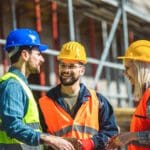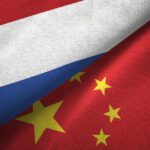How does human capital contribute to contemporary and future innovations? And how can we optimise this contribution? The societal missions and transitions in the coming years call for more knowledge and groundbreaking innovations, and this, in turn, will put higher demands on the workforce. The call ‘Human Capital, learning communities needed for societal and technological transitions (KIC)’ focuses on how to accelerate innovation through learning communities.
Aim
Rapid societal, economic and technological developments call for an agile response to the constantly changing labour market. In addition to ensuring a sufficiently large workforce, this also entails preparing professionals and students for changing work practices. Training and work play an essential role in initiating and accelerating innovations. This call focuses on how human capital can contribute to innovations and how to optimise that process. A key concept in this is the notion of the learning community.
Learning communities
The term ‘learning community’ refers to public-private learning-working practices intended to drive innovation. Knowledge and educational institutions, industry, government and other public-private partners work closely together in these communities. Research, work, innovation and learning are thus linked. As far as learning is concerned, these are hybrid learning environments, in which formal and informal learning converge. Learning communities are not new; they exist in various forms, such as Centres of Expertise at the various universities of applied sciences, Centres of Innovative Workmanship in secondary vocational education, living labs, field labs and hubs.
In this call, researchers are asked to explore ways of accelerating innovation through learning communities. Speeding up the expansion of the innovation capacity of the current and future workforce is needed to respond to societal missions and stimulate economic growth. Strengthening proactive learning and cooperation between public and private parties within learning communities offers opportunities for this.
Three themes for research
This call is looking for applications aimed at acquiring new fundamental and practice-based knowledge on the active elements of learning communities in relation to driving innovation. The proposals can focus on:
- How work-based learning and innovation can be a logical part of a learning community;
- In what way a learning community should then be set up; and
- How this establishes a link between learning and innovation.
Four research contexts
The KIA Energy Transition and Sustainability, the KIA Health and Care, the KIA Agriculture, Water and Food, and the KIA Security have each highlighted the topic of human capital and learning communities for the creation of this call.[1] The learning communities to be explored within this call should operate in at least one of the four following research contexts:
I. Energy Transition and Sustainability;
II. Health and Care;
III. Agriculture, Water and Food; and
IV. Security.
Call expected to open in January 2023
The call for proposals ‘Human Capital, learning communities needed for societal and technological transitions (KIC)’ is expected to open in January 2023.




